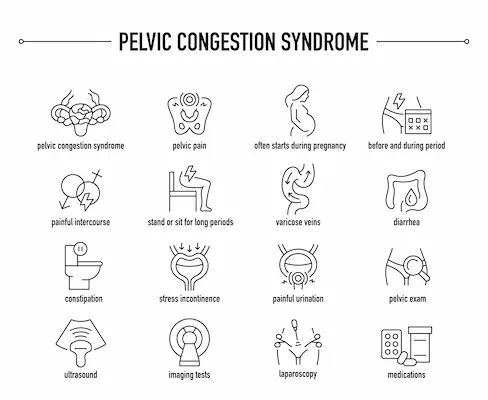Your Guide to Internal Medicine: The Expert in Adult Health
Explore internal medicine and learn how specialists manage adult health. Understand their role in preventing, diagnosing, and treating various conditions.

Written by Dr. Shaik Abdul Kalam
Reviewed by Dr. Rohinipriyanka Pondugula MBBS
Last updated on 13th Jan, 2026

Introduction
When navigating the world of healthcare, you encounter various types of doctors. You might have a family physician for your children's check-ups or visit a dermatologist for a specific skin concern. But what about the doctor dedicated solely to the complex health needs of adults? This is the realm of internal medicine. Often misunderstood, an internist is much more than a general practitioner for adults. They are highly trained specialists in diagnosing, treating, and preventing a vast spectrum of diseases that affect adults, serving as detectives, primary caregivers, and coordinators for your long-term health. This guide will demystify the field of internal medicine, helping you understand what an internist does, how they differ from other doctors, and when their specialised expertise is the right choice for you or your loved ones. We'll explore their role in preventative care, managing chronic conditions, and solving diagnostic puzzles, empowering you to make informed decisions about your healthcare journe
What is Internal Medicine? More Than Just "Adult Medicine"
At its core, internal medicine is the medical specialty dedicated to the comprehensive care of adults. The term "internal" comes from the German "Innere Medizin," focusing on diseases of the body's "internal" organs. Unlike surgery, which addresses issues operatively, internists use diagnostic tools, medication, and lifestyle counseling to manage health.
The Internist: A Doctor for Complex Health Puzzles
An internist, or internal medicine doctor, is often described as a "doctor's doctor" because other physicians frequently consult them for challenging diagnostic cases. Their training is intensely focused on adult physiology and pathology. After medical school, they complete a three-year residency specifically in internal medicine, where they gain deep experience in hospitals, managing acutely ill patients with multiple, overlapping conditions. This hospital-based training is a key differentiator, equipping them to handle severe and complicated health situations. Think of an internist as a master problem-solver for adult health, connecting the dots between symptoms that might seem unrelated at first glance.
The Philosophy of Care: Holistic and Evidence-Based
The approach of a skilled internist is both holistic and evidence-based. They don't just treat a disease; they treat the whole person. This means considering how a heart condition might be affected by stress, how diabetes interacts with kidney function, and how a patient's lifestyle and social circumstances impact their treatment plan. They are trained to see the interconnectedness of the body's systems. This comprehensive perspective is crucial for managing complex chronic diseases like hypertension, diabetes, and heart failure, where multiple factors are at play. Their decisions are grounded in the latest clinical research and guidelines, ensuring you receive care that is both personalised and scientifically sound.
Health topic carousel:
Doctor's speciality: Internal Medicine
Text: Consult an Internal Medicine Specialist for the best advice
Internist vs. Family Doctor: Which One is Right for You?
This is one of the most common questions in primary care. While there is overlap, key differences can guide your choice. Both are primary care physicians, but their training and typical patient focus set them apart.
Key Differences in Training and Patient Focus
A Family Medicine doctor receives broad training that includes paediatrics, obstetrics, gynaecology, and sometimes minor surgery. Their focus is on caring for individuals of all ages, from newborns to seniors, often within the context of a family unit. An Internist, however, trains exclusively in adult medicine after medical school. Their residency is dedicated to the intricacies of adult diseases, making them specialists in this domain. While a family doctor is an excellent choice for a generally healthy individual or a family seeking one doctor for everyone, an internist's deep, adult-focused training makes them particularly suited for adults with multiple or complex medical issues.
Making the Choice Based on Your Health Needs
Your choice depends largely on your health status and preferences.
Choose a Family Doctor if: You are healthy and prefer a single physician for your entire family, including children. They provide excellent routine and preventative care for all ages.
Choose an Internist if: You are an adult (especially over 40) with or at risk for chronic conditions like high blood pressure, diabetes, or heart disease. If you have a complex set of symptoms that have been difficult to diagnose, an internist's specialised training can be invaluable.
What Does an Internist Actually Do? A Day in the Life
The role of an internist is dynamic, blending long-term relationships with patients with the intellectual challenge of solving acute medical problems.
Preventative Care and Health Maintenance
A significant part of an internist's work is preventing illness before it starts. This includes conducting annual wellness exams, ordering appropriate screening tests (like mammograms or colonoscopies), providing vaccinations, and offering counseling on weight management, nutrition, smoking cessation, and stress reduction.
Diagnosing Complex and Unusual Symptoms
When a patient presents with vague or complicated symptoms such as persistent fatigue, unexplained weight loss, or multi-system issues, the internist acts as a medical detective. They take a detailed history, perform a physical exam, and order and interpret diagnostic tests to pinpoint the root cause. This diagnostic expertise is a hallmark of the specialty.
Managing Chronic Diseases Long-Term
For conditions like diabetes, hypertension, chronic obstructive pulmonary disease (COPD), and rheumatoid arthritis, internists provide continuous, long-term management. They adjust medications, monitor for complications, and help patients maintain their quality of life. This ongoing relationship is central to effective chronic disease management.
Coordinating Care with Specialists
If a patient needs to see a cardiologist, neurologist, or other specialist, the internist often serves as the quarterback of their care team. They make the referral, communicate the patient's overall health picture, and then integrate the specialist's recommendations into a cohesive, overarching treatment plan.
Common Conditions Treated by Internal Medicine Doctors
The scope is immense. Internists are trained to treat almost any condition that affects adults, including:
Cardiovascular diseases: Hypertension, heart failure, high cholesterol.
Endocrine disorders: Diabetes, thyroid disease, osteoporosis.
Respiratory illnesses: Asthma, COPD, pneumonia.
Gastrointestinal issues: GERD, irritable bowel syndrome (IBS), liver disease.
Infectious diseases: From influenza to more complex infections.
Kidney problems: Chronic kidney disease.
Blood disorders: Anaemia.
Arthritis and musculoskeletal pain.
The Subspecialties of Internal Medicine: When You Need a Deeper Dive
After residency, many internists pursue further fellowship training to become specialists in a specific organ system or disease area. These internal medicine subspecialties include:
Cardiology: Heart and blood vessels.
Endocrinology: Hormones and glands (e.g., diabetes, thyroid).
Gastroenterology: Digestive system.
Nephrology: Kidneys.
Pulmonology: Lungs.
Rheumatology: Joints and autoimmune diseases.
Infectious Disease: Complex infections.
When Should You See an Internist? 5 Key Scenarios
Knowing when to consult an internist can help you catch health issues early and maintain overall well-being.
1. You are an adult seeking a primary care doctor and want a specialist focused solely on adult health.
2. You have a family history of complex conditions like heart disease, cancer, or diabetes.
3. You are managing multiple chronic conditions and need a coordinator for your care.
4. You have unexplained symptoms that have not been successfully diagnosed.
5. You are hospitalised for a serious illness; in many hospitals, internists (often called "hospitalists") manage inpatient care.
What to Expect at Your First Internal Medicine Appointment
Your first visit will be comprehensive. Be prepared to discuss your full medical history, current medications, allergies, lifestyle habits, and family health history. The internist will likely perform a thorough physical exam. This visit is about building a foundation for your future care, so honesty and detail are key.
The Unique Value of an Internist in Modern Healthcare
In an era of increasing medical specialization, the internist provides a crucial, unifying perspective. They prevent the fragmentation of care that can happen when a patient sees multiple specialists. By understanding the whole patient, they can make nuanced decisions that consider the interplay between different conditions and treatments, ultimately leading to safer, more effective, and more personalised healthcare.
Conclusion
Choosing the right primary care physician is one of the most important decisions you can make for your long-term health. Internal medicine offers a specialised, depth-oriented approach tailored to the unique needs of adults. An internist is more than a caregiver; they are a partner, advocate, and expert guide through the complexities of the adult body. Whether you are focused on prevention, managing a chronic condition, or seeking answers to puzzling symptoms, the comprehensive training and holistic philosophy of an internist can provide the clarity and continuity of care you deserve. Take the next step in your health journey by considering if an internist is the right partner for you.
Frequently Asked Questions (FAQs)
Below are the FAQs:
1. Does an internist perform surgery?
A. No, internists are considered "non-surgical" physicians. They diagnose and treat diseases using medications, lifestyle therapies, and other non-invasive methods. If a surgical issue is identified, they will refer you to a surgical specialist.
2. Can an internist be my primary care physician?
A. Absolutely. Many adults choose internists as their primary care physicians (PCPs), especially if they have or are at risk for complex health issues. They provide annual physicals, preventative care, and manage ongoing health needs.
3. What is the difference between an internist and a general practitioner?
A. The term "General Practitioner" (GP) is less common today but typically refers to a doctor who may not have completed a specialised residency in family medicine or internal medicine. All internists are specialists in adult medicine, while a GP may have a broader, less specialised training background.
4. When should I see an internist instead of a specialist?
A. It's generally best to see an internist first for a new or unexplained health problem. They can provide an initial diagnosis and management plan. If your condition is highly complex or requires specialised treatment, they will refer you to the appropriate specialist and coordinate your care.
5. Do internists see patients in the hospital?
A. Yes. Many internists work as "hospitalists," caring exclusively for hospitalised patients. Even internists with outpatient practices often have privileges to see their own patients if they are admitted to the hospital.
Health topic carousel:
Doctor's speciality: Internal Medicine
Text: Consult an Internal Medicine Specialist for the best advice
.jpg)



